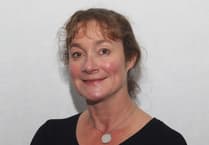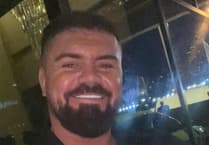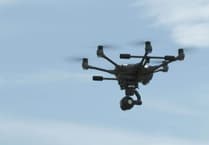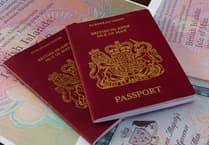Life can often throw up some unexpected twists and turns, leading you to places that you may not have considered going to before.
That is definitely the case with the career of Dr Gourashyam Singh Khuraijam, better known to all as Dr Sam, who has published his life story in a new book.
Dr Sam released ’The Promise and Unexpected Encounters’ recently, which charts a life spent dedicated to the health and well-being of the Manx population, working as a consultant physician, specialising in geriatric care at Noble’s Hospital, as well as the many prominent roles that he undertook both in his working career and after his retirement in 2010.
Since he arrived in the Isle of Man in 1977, aged 36, he became immersed in island life and played key roles in setting up such groups as the Manx Stroke Association, of which he is still the president.
However, Sam very nearly never made it here at all and only received an invitation to work here purely by accident.
Having grown up in Imphal, the capital of Manipur, on the border of Burma, Sam admits that he had never heard of the Isle of Man. Still, when he unexpectedly received a phone call and an invitation to come to the island to see the place for himself, Sam’s interest was piqued and he made the journey to here, only to be hit by a series of incredible coincidences that convinced him to make the island his home.
’In 1977 I was working at Leighton hospital, in Crewe,’ said Dr Sam.
’From out of nowhere, during only my second week in England, I got a call from Ernest Kneale, who was then the manager of Noble’s Hospital.
’To this day I do not know how they got to know about me, find my details or see my CV, as I never applied for a job over here.
’I had never heard of the Isle of Man in my life and never heard about Noble’s.
’I had actually applied for a job in Norwich, but that was it.
’On my first day in Noble’s Hospital, I was introduced to a consultant, a man called Harry Corrigall.
’How, I don’t know, but my CV appeared on his desk. I think possibly my CV was mixed up with other colleagues and sent to the Isle of Man by mistake, as we all applied for jobs at the same time.
’But whatever happened, Harry saw my CV. I couldn’t believe it when he sat me down and told me that he knew my father! He told me that as soon as he saw my name he wanted me here.’
Dr Corrigall served as an army medical officer in the Second World War, serving under General Slim, during the Burma campaign.
General Slim’s headquarters was based in Imphal and Dr Sam’s father, Khuraijam Maipak Singh, taught many British officers how to speak the native language, including Dr Corrigall.
’He even greeted me with "Namaste" when I entered his office, which I never expected. I thought I was dreaming. By then, this was only my third week in England,’ he said.
This was the first of many unexpected links with ex-servicemen who had fought in the jungles of Burma.
’During the war, men landed by parachute at my school to help secure the area against the Japanese,’ he said.
’Everywhere around Imphal was occupied by the Japanese Army and our area was the only place not occupied.
’I remember seeing this man at the time when I was young. I could not believe it that I ended up meeting him on the Isle of Man. He was a Manxman.
’Pilot Officer Brian Cringle parachuted into my school and claimed it for General Slim. And then here he was in front of me in the Isle of Man, so soon after I arrived here.’
’Then I met a patient, from Willaston, who asked me "Are you, by any chance, from Manipur?"
’Again, I could not believe it. This man also fought there. He told me that he was a member of the Burma Star Association, which I had never heard of at that time. This was around 1980.
’He invited me to meet them and I met so many people from the island who fought in Burma and under General Slim and who knew all about Imphal, maybe a lot better than me. I liked them immensely and looked up to them.’
Dr Sam was soon convinced that he should make the island his home for him and his wife Mena and their two daughters, Monica and Jessica.
He also strengthened his ties with the former soldiers by becoming a member and then, ultimately president of the Burma Star association, a position he still holds today.
’Quite simply, after coming here without knowing anything about the Isle of Man, never hearing about Noble’s Hospital, having only left India two weeks before, I suddenly felt at home here,’ he said.
’I also felt, after meeting these men who fought for my country, that it was my job to look after them. Morally, I thought it was my job to look after these people who defended my home.
’When I was offered the presidency of the Burma Star Association, I told them you were my saviours. It is my time now to look after you all.’




